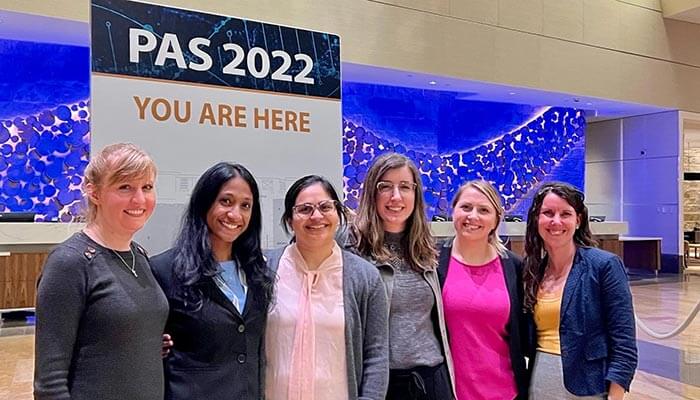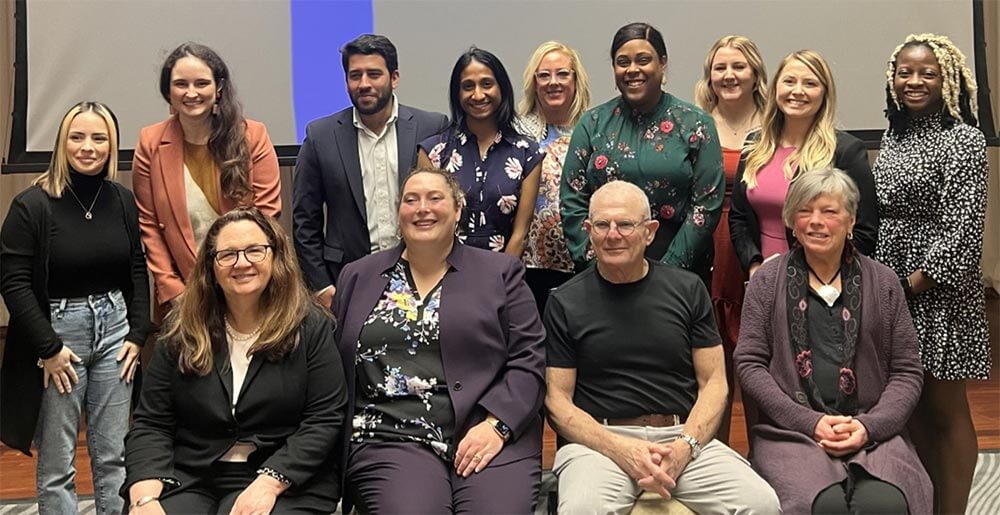Research Training
Fellows spend approximately two-thirds of their fellowship training actively engaged in research. Our fellows complete scholarly activities that contribute to advancing the field of neonatology and fulfill eligibility requirements for the Neonatal-Perinatal Medicine Board Examination. Our program expects each fellow will present their research at a national forum and author a manuscript based on their research prior to graduation. Fellow research funding is available from AAP Neonatal-Perinatal Medicine Section awards, industry-sponsored grants, endowments, and the Rainbow Fellowship Research Award in Pediatrics (FRAP).
Watch our video to learn more about research in our division.
Mentorship
Our fellows use the first six months of fellowship training to explore research ideas. They spend time in the laboratories of potential bench research mentors and discuss ideas with clinical researchers. Fellows may choose to do basic science or clinical research and identify mentors within or outside of the Division of Neonatology for their fellowship project.
View Recent Fellow Publications
Basic Science Research
The Division of Neonatology has a productive basic science research program. Our research faculty have a strong history of funding and mentorship. Prominent areas of research include: pulmonary physiology and lung development, control of breathing, cardiac embryology, and fetal and pediatric environmental health. Dr. Bearer, division chief, is the Editor-in-Chief of Pediatric Research.
Clinical Research
The Division of Neonatology has an active clinical research program. We are a founding member of the National Institute of Child Health and Human Development (NICHD) Neonatal Research Network (NRN) and participate in many multi-center clinical trials initiated by the NRN and other investigator groups. We have a renowned neonatal follow-up program, which has followed NICU survivors into adulthood. Active areas of research include apnea, gastroesophageal reflux, long-term pulmonary outcomes, breastfeeding and nutrition, and neurodevelopmental outcomes.
Division Research Conference – Division of Neonatology fellows, faculty, research nurses, statisticians, and research engineers meet monthly to discuss current research endeavors and review site studies and trials. At this meeting, fellows present their initial research proposals and final research projects at the end of their 1st and 3rd years, respectively.
Division Joint Lab Meeting – This joint virtual-conference organized by Dr. Peter MacFarlane occurs twice per month. New and recently published data are presented by local CWRU faculty, as well as guest lecturers. Topics include basic science and translational research. Faculty and fellows have utilized this forum to rehearse conference and other invited talks. Dr. MacFarlane also hosts an annual poster-walk each spring in the CWRU Biomedical Research Building.

Presentation at National Conferences
During their first year of fellowship training, the division sends each fellow to the annual Neonatology Conference at the Nemacolin Woodlands Resort. Here, the first year fellows enjoy time relaxing and interacting with faculty members as well as neonatologists from multiple centers in the Midwest and Northeast. In the second and third years of fellowship, there are multiple regional and national conferences for fellows to present their research findings in intimate gatherings of fellows and nationally recognized neonatologists. Prior to graduation, each fellow is expected to present their work at a large national meeting such as the annual Pediatric Academic Societies and/or the AAP National Conference & Exhibition meetings. Our fellows have presented posters, poster symposia, and platform presentations in front of hundreds at these venues. Funding is available for fellow travel expenses and conference registration fees for such research presentations.



